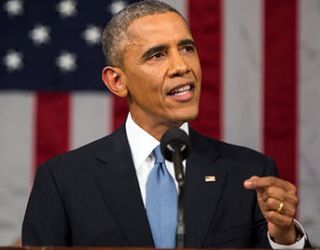Consumers Can’t Afford Obama’s Set-Top

Innovation may move at the speed of light, but the agency charged with overseeing much of that innovation, the Federal Communications Commission (FCC), simply does not.
That hasn’t changed since 1998 when I was chief of its Cable Services Bureau charged with drafting the first cable set-top box order. At the time, the FCC voted to “unlock the box” by requiring companies to separate the security feature that protects encrypted, copyrighted content from the box itself. The hope was that separating security and the box would spur lots of different companies to build boxes consumers could buy from Circuit City, Radio Shack or Crazy Eddie.
Here’s the problem: The FCC policy never really took with consumers. Only a few thousand cable customers ever bought a box with the FCC's fix. Finally, in 2015, Congress got rid of the integration ban. Over the years there were various failed attempts at a better solution to making the box commercially available, but the box ceased to be a high priority on the FCC’s agenda.
Now, in an inexplicable bout of déjà vu, a lame-duck FCC chairman, Tom Wheeler, is making another run at creating a market for set-top boxes through a catchy sales pitch, “Expanding Consumers’ Video, Navigation Choices—Commercial Availability of Navigation Devices.” The cable industry and Hollywood say this FCC proceeding is a giveaway to Silicon Valley. It requires programmers to allow behemoths like Google access to their proprietary content that can be streamlined, repackaged, and wrapped around new packages of advertising.
Breaking with the tradition of not commenting on pending FCC matters, President Obama made a bold televised announcement on April 15 declaring the unlocking of the box one of his core competitive priorities. The White House boldly claims the proposal now pending before the FCC “will promote innovation and lead to positive results for consumers” such as lower costs. Unfortunately, the FCC and this administration have missed an important development: innovation has already evolved beyond anything the FCC could mandate.
I, for one, would prefer big pharma as a core competitive priority because my Advair prescription costs substantially more than a monthly set-top box fee -- and that’s not something I can cut.
Internet-edge providers such as Netflix, Hulu, Roku, Apple TV and others have become disrupters in the video marketplace. Cable subscribers are cutting or shaving the cord in droves. The set-top box is no longer the gatekeeper of video in the home. The future of TV will be tablets, smartphones, smart TVs and other devices that today are unimaginable. In fact, Comcast just announced a deal with Roku where it will offer InfinityX video streaming through Roku devices without a box.
So what does the FCC’s rulemaking actually do for consumers? In the near term; nothing-In the long term, probably nothing good. When the dust settles, the government has no ability to forcibly lower the cost of the box.
A close look at the president’s pledge reveals neither the White House nor the FCC offers any real proof that anyone other than the Googles of the world will benefit from new rules. The FCC’s rules are at risk from a lengthy court challenge, so consumers shouldn’t rush to Best Buy, HH Gregg or Target stores anytime soon to purchase streaming devices enabled by new FCC rules.
Furthermore, the box has a hidden price. The president’s intrusion into this regulatory matter threatens public confidence in the FCC, which Congress established as an independent expert regulatory agency. Clearly, just as every citizen has the right to participate in public proceedings, so, too, does the president. But he is no ordinary citizen. Highly charged public comments by him may unduly influence the FCC’s rulemaking process, thereby subjecting the agency to charges of bias. This is especially true, given this administration's close ties to the main beneficiary of the order -- Google
By highlighting this issue in an election year as a component of his core competition agenda, Obama has politicized it. Scoring political points through a pending regulatory matter weakens the FCC’s stature as an independent expert agency. It also places FCC commissioners, who are appointed by the president, in a precarious position.
The three Democrats on the commission who hold the majority must decide whether to obey the White House or exercise their independent judgment and expertise that their oath of office requires. If their opinion is not in accord with the president’s, do they disobey him and risk jeopardizing their careers or do they obey and violate their oath? This is a quintessential Hobson’s choice that a commissioner should not have to make. The damage to the agency’s reputation and resulting loss of consumer trust is too high a price to pay for a set-top box.
Deborah Lathen, former senior executive at the FCC, is an independent telecommunications consultant, a member of the District of Columbia Board of Ethics and Government Accountability and a former non-executive director of BT (British Telecom).
Multichannel Newsletter
The smarter way to stay on top of the multichannel video marketplace. Sign up below.

Deborah Lathen previously served as bureau chief of the FCC’s Cable Services Bureau. She is currently the principal at Lathen Consulting, providing consulting services to telecommunications and media companies.
